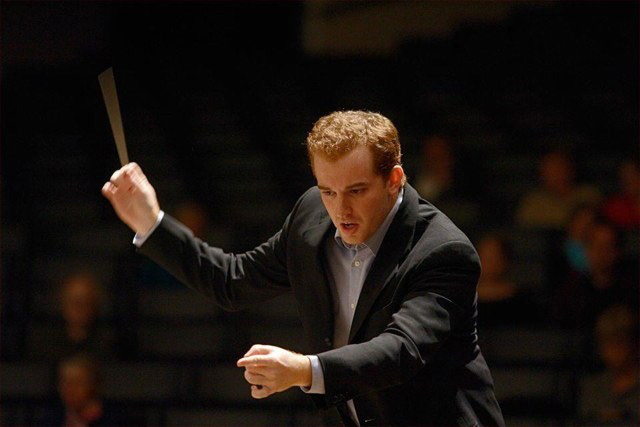Update: The review of this concert pair is in the April 21 issue of the Knoxville Mercury.
Knoxville Symphony Orchestra Masterworks Concert
Adam Schoenberg: Finding Rothko
Antonín Dvořák: Concerto in B minor for Cello and Orchestra (Susie Yang, cello)
Edward Elgar: Enigma Variations
Thursday and Friday, April 14 and 15, 2016, 7:30 pm
Tennessee Theatre, 604 S. Gay Street, Downtown Knoxville
Tickets and information
—————————————
Inspiration always seems to have a meandering path through various lives while looking for fertile ground.
In a way, the story of Dvořák’s Cello Concerto begins with another composer, Victor Herbert. Herbert was born in Dublin, Ireland, and began his career in Austria and Germany where he met his wife, Therese Förster, an opera singer. Both were brought to the U.S. by the Metropolitan Opera in 1886—Herbert as the principal cellist of the Met Opera Orchestra and Therese as a principal singer with the company. Herbert’s career as both a composer and conductor developed and flourished in the New York music world, with composer Herbert becoming known for operettas (e.g. Babes in Toyland) and orchestral music. His own Cello Concerto No. 2 in E minor premiered in March of 1894 with the New York Philharmonic conducted by Anton Seidl.
Herbert had been the principal cellist at the premiere of Dvořák’s “Symphony from the New World” the previous year and clearly there was great respect between the two colleagues. Dvořák attended the March premiere of Herbert’s concerto and was supposedly deeply impressed with the potential of the instrument in the proper hands. At the same time, as fate would have it, Dvořák was being pursued by his friend and cellist of the Czech String Quartet, Hans Wihan, to write a cello concerto for him.
The world premiere of Dvořák’s Cello Concerto took place in London in 1896, not with Wihan, due to a misunderstanding, but with cellist Leo Stern as soloist.
Despite Herbert’s influence and the fact that some of its composition period took place during Dvořák’s stay in America, the work does not really have the hints of nostalgic Americana that exist in the “New World” symphony. Instead, there is nostalgia, but it is nostalgia for his Czech homeland and a love for the Slavic flavors that haunt his other work.
Cellist Susie Yang will be the soloist in this KSO performance of Dvořák’s Cello Concerto.
———————-
Guest conductor Steven Jarvi, the last of the six candidates vying for the vacant KSO music directorship, has chosen Edward Elgar’s Enigma Variations to close the program. My thoughts immediately go to last May’s KSO concert, the final one under departing music director, Lucas Richman. Richman chose as an encore the Variation IX “Nimrod” from the Elgar, a selection that ellicits both tears and hopeful optimism. As the KSO conductor search comes to a close, optimism is certainly running rampant. And, optimism is something there is never too much of.







